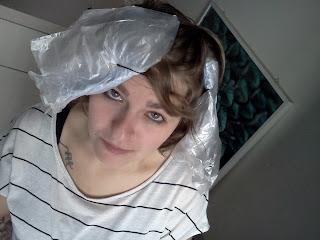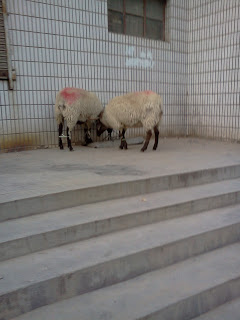There are so many things that make up a
culture. Culture is defined as "
the behaviors and beliefs characteristic of a particular social, ethnic or age group". When we live in our own
“culture” never experiencing another we don’t realize what “my
culture” means. When you go somewhere new and something
surprises you because its different or weird in your eyes, its a form of culture shock.
America. For me, until I really
started to travel, I didn't know we had culture. I mean we have many
cultures, but what is American culture? I can't define it,
but I can give examples and I know we have one. Unfortunately while writing this blog I've forgotten so many things I've noticed just this week, but I'll make sure to document them for another post in the future.
Example: We use forks and knives. Asians use
chopsticks. Indians use hands. South Americans and Islanders use
spoons. With our multicultural identity for some, this might not surprise. But it is truly an easy example of culture. It is a form of our behavior we have learned our ethnic group.
Another example: In America we want our skin to get as dark as
possible. In Asia, they want their skin to get as light as possible. This is even seen in what our societies sell... lotions. Many of ours has darkening agents and many in Asia have
whitening agents. Again this is a learned behavior. Their is actually some interesting history behind this, but I don't want to bunny trail. If you are interested in knowing it, comment on this blog post and I'll make sure to tell the story in the next one.
Culture is learned, it is not genetic
or ancestral. When a Chinese baby is adopted by a Chinese family,
that baby is Chinese only in heritage, but American in every other way. Hopefully you know by now, but I'm taking classes online through Washington State University and hoping to double major in Anthropology and Sociology. Well, in both these subjects we learn about culture, but one class described it this way: A couple gets stranded on an Island. The woman knows how to make fires and cook food, so that's what she does. The man likes to walk and collect berries, so that's what he does. When they have kids, the man takes their sons with them and teaches them what he does, the woman takes the daughters and teaches them what she does. The only reason they chose these roles was because they enjoy them. So generation later the woman still cook and make fires and the men still walk and gather. But now no one really knows why this is, but its become the culture and if people try to change it, its very strange and feels ridiculous. A very simple narrative, but one I thought explained culture well.
I
heard a story of an American couple who went to China and lived in a
village, disease swept through killing both of them, but leaving a
newborn baby. Another family (Chinese) in the village raised the
baby as their own. He grew up and learned how to walk, talk and act
like the villagers. As an adult he went back to America and it was
too weird for him, so he returned to what he knew as his “home”,
that being China.
I experience culture everyday,
sometimes its new to me and sometimes its normal. In fact, when I
go back to America I often struggle with confusion of whats normal
and whats not.
A couple weeks ago I was with a friend
and we had some snacks out. She's Chinese, I'm American. There was
some spicy peanuts that we had just finished, so she put her finger
in the container to lick it clean. I started to laugh cuz it seemed
so ridiculous to me. A little while later there was some peanut
butter that was nearly finished. So I put my finger in it and
started to lick it clean, she started to laugh and me because it just
seemed so ridiculous. Then we both laughed, cuz we realized it was
just culture.




